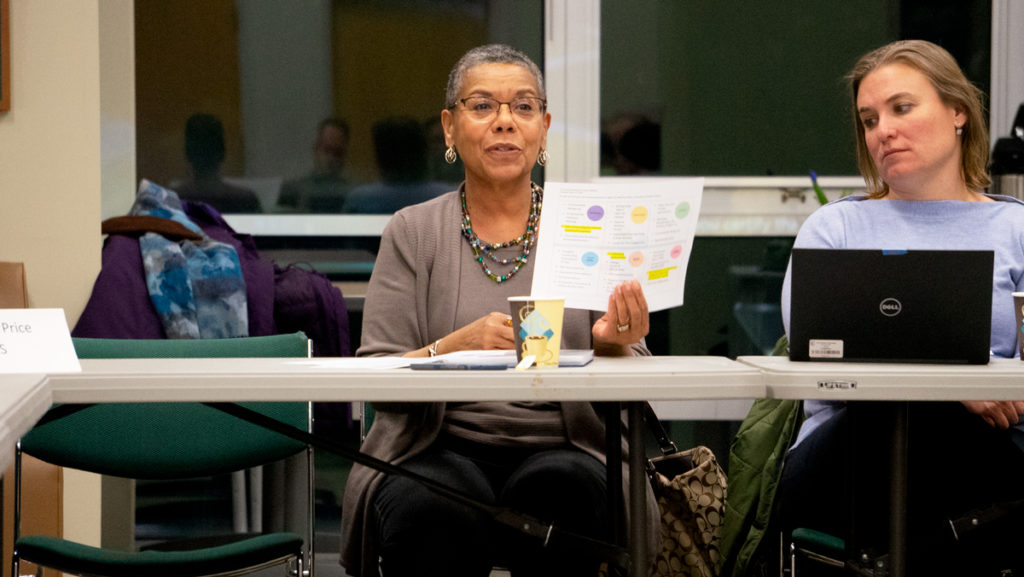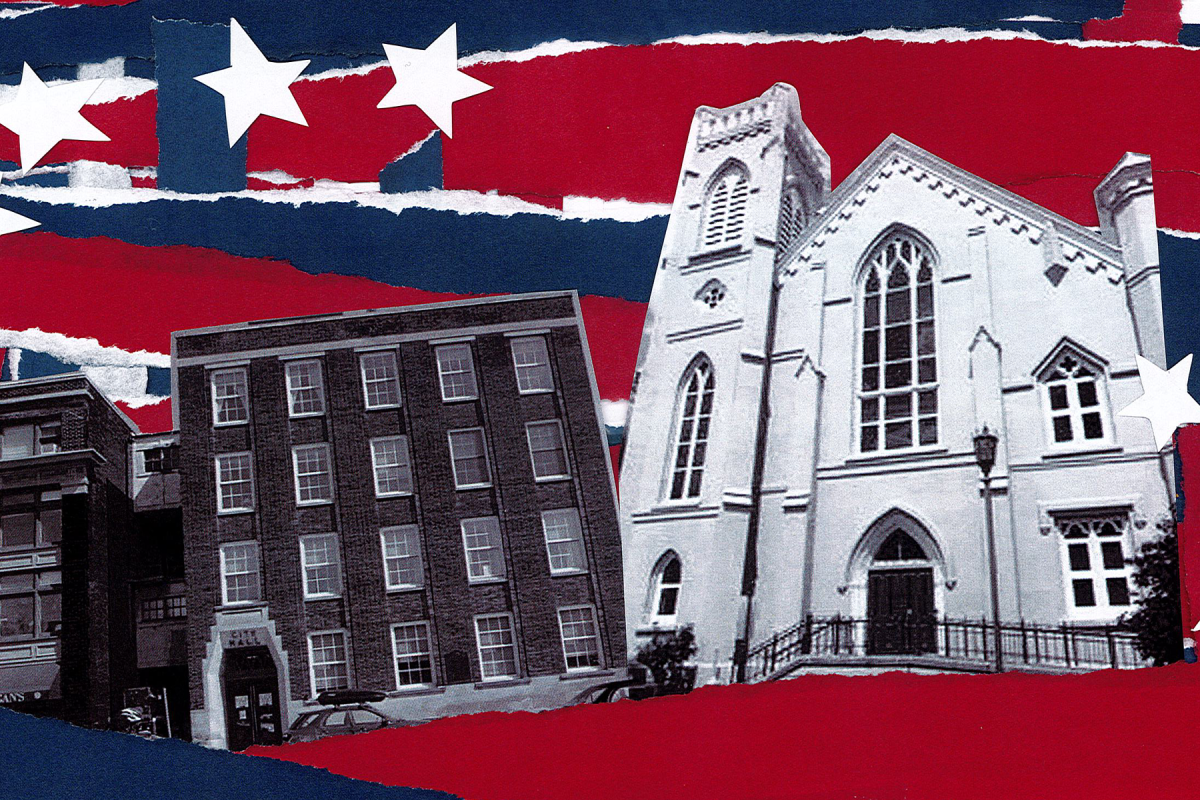At the March 5 Ithaca College Faculty Council meeting, Paula Younger, executive director for government and community relations, briefed the council on her responsibilities in her position and some of the new projects she is developing.
She started by discussing how faculty can get involved with the Greater Ithaca Activities Center (GIAC) community fundraising event. GIAC, which is located downtown and provides programming for youth in the community, has signed a three-year contract with the Gus Macker Basketball Tournament and will be hosting the first GIAC-sponsored tournament in the fall. The tournament is being held to raise money for the Ithaca community. Younger said students, faculty and staff are encouraged to volunteer in the tournament to demonstrate the importance of partnerships between the town and the college. In the future, Younger said that the college would like to have an established group of GIAC partners, including students and faculty, who are familiar with the Gus Macker process.
Younger said the coordination of this event could also provide student opportunities through internships. Three students will be working to plan the event with David Prunty, executive director of auxiliary services, as part of the Live Event Design and Management class.
She also discussed having a student intern work with her on looking into state policies on higher education. For example, Younger said she had been investigating the potential impacts on the college if New York state were to remove Bundy Aid, which provides financial support to independent institutions like Ithaca College. She said this change could result in approximately a $1 million loss for the college.
Younger said she also wants to form a student cabinet to focus on the Commission on Independent Colleges and Universities (CICU) in New York. President Shirley Collado was recently appointed to the CICU board. The cabinet would get exposure into how the state operates by taking a couple of trips to Albany, New York, and working closely with Younger.
Peyi Soyinka-Airewele, professor and chair of the Department of Politics, said she has noticed there is not a central place to find partnership opportunities between the community and the college, like those mentioned by Younger. In response, Younger said a cohesive database is being made to organize these opportunities.
Later in the meeting, Linda Koenig, Title IX coordinator at the college, discussed the college’s response to the proposed changes to Title IX by the Department of Education.
Koenig said she wants to emphasize that the changes have only been proposed and may not take effect for as many as 18 months, meaning for some current college students, the changes would never have any impact on their college experiences.
Koenig spoke about some of the proposed changes — the accusers and the accused would be allowed to have an advisor present at all meetings related to the investigation, and that cross-examination would be allowed by each of the advisors to the opposite party. Koenig said the college responded to these changes with concern because an attorney would be professionally trained in cross-examination whereas any other advisor may not be. Koenig also said if the accuser feels uncomfortable with cross-examination from an attorney and refuses to be cross-examined, they could lose the entirety of the evidence they had submitted.
Koenig also emphasized that the main changes in the proposal would focus more on making sure the accused and accuser have equal rights in the investigation. Another main theme in the proposed changes was slowing down the process, Koenig said. She said colleges would be asked to consider how quickly they would temporarily take a student out of classes before investigating any charges made against them. Other proposed changes involved altering the definition of sexual harassment and preventing campuses from becoming involved in off-campus charges that were not part of a college program or activity. The definition would change from “…severe, pervasive, or objectively offensive” to “severe, pervasive, and objectively offensive.”
Vince Nicotra from QPK Design and Tim Carey, associate vice president of facilities, also spoke to the council about the redesign of the Campus Center. Nicotra and QPK Design are working with Carey to visualize and structure the redesign of the Campus Center. Nicotra and Carey said they wanted feedback from the faculty on improvements that could be made to the Campus Center.
Faculty Council members expressed concerns about the accessibility of the building, especially concerning the layout of stairs surrounding it. Members also asked for more study spaces and group meeting space.
They also discussed a lack of eating space, particularly a space strictly for faculty in the building. Soyinka-Airewele said she could not find space to eat with a prospective faculty member because the area was too crowded. Other members agreed, saying they would like a nicer eating location to bring prospective faculty members to. The members also discussed that having more space for faculty to eat could inspire more interdisciplinary interactions among faculty. Members expressed that they tend to stay out of the Campus Center to avoid the crowding and the quality of the food.
Correction: A previous version of this article misstated the advisor’s role in the proposed Title IX changes. It has been corrected to accurately state that role.








